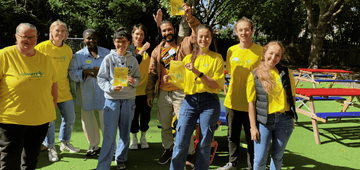RSPH is deeply concerned by today’s announcement from the Government that the UK has lost its ‘measles-free’ status. There have already been 290 cases of measles reported in the first quarter of 2019 alone. Measles is one of the most contagious diseases in the world, with the potential to cause other serious complications such as pneumonia and inflammation of the brain.
The introduction of the measles vaccine to the UK has averted 20 million measles cases and 4,500 deaths since 1968, according to an estimate by Public Health England. However, measles cases tripled across Europe between 2017 and 2018. While the UK has not seen a comparable rise, today’s announcement is a warning against complacency.
RSPH now urges that the Government follow through with its new plans for addressing the gaps in vaccination uptake, including catch-up programmes for those who have missed out on the MMR jab, local interventions to under-vaccinated communities and a summit for social media companies to discuss their role in promoting accurate vaccine information online.
Shirley Cramer CBE, Chief Executive of RSPH, said: “The loss of our ‘measles-free’ status is a huge blow to the significant progress that has been made in preventing this potentially fatal disease. Uptake for the MMR vaccine has persistently been below the 95% target over the last few years, and if this doesn’t change, we can absolutely expect to see a further rise in cases of this serious illness.
“Catch-up programmes for those who have missed out, as well as targeting communities that have been hardest to reach, are important steps the Government must take. It’s clear also that the social media giants have a part to play in curbing the spread of vaccine misinformation online. Our report, Moving the Needle, found that two in five parents see negative messages about vaccines on social media, so it’s encouraging to see that the Prime Minister plans to get social media companies round the table to find ways to address this.
“The discovery of vaccines has saved millions of lives, will save millions more, and should be seen as one of humankind’s proudest achievements: we need to continue spreading that message.”



